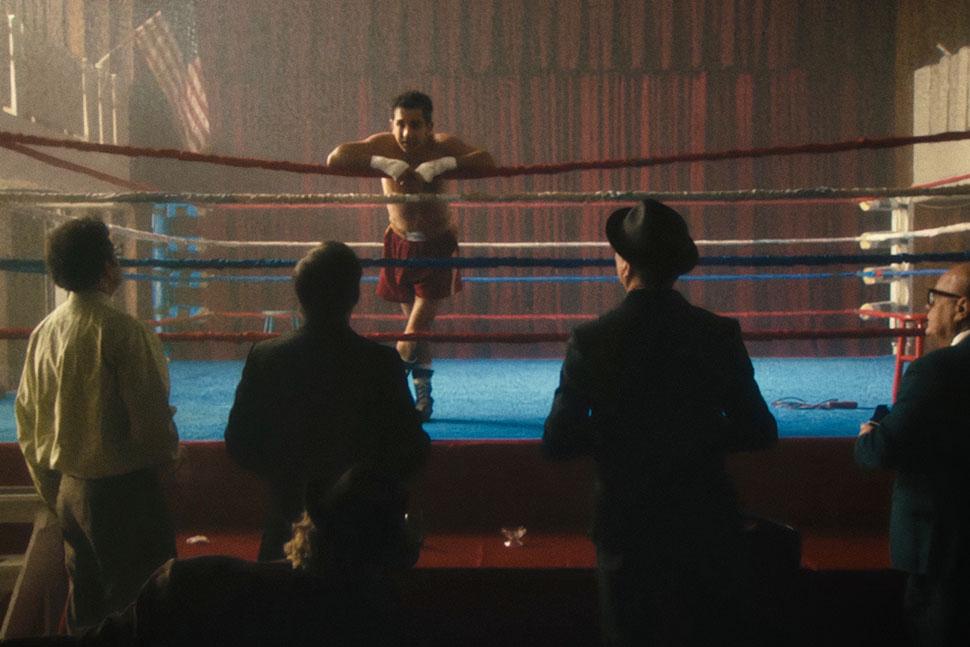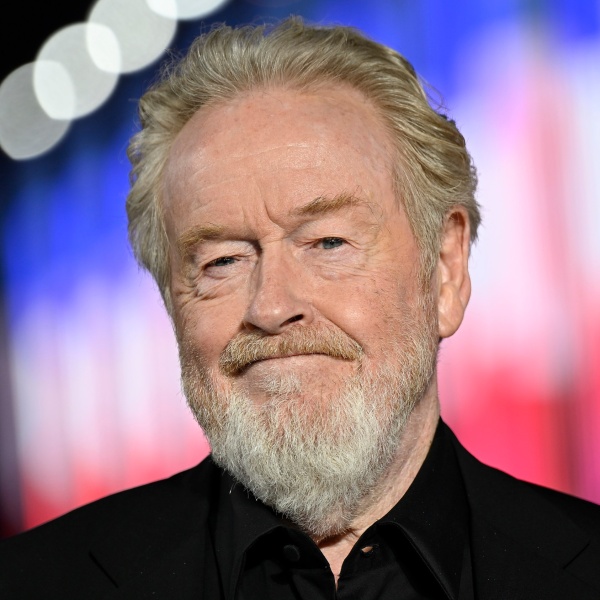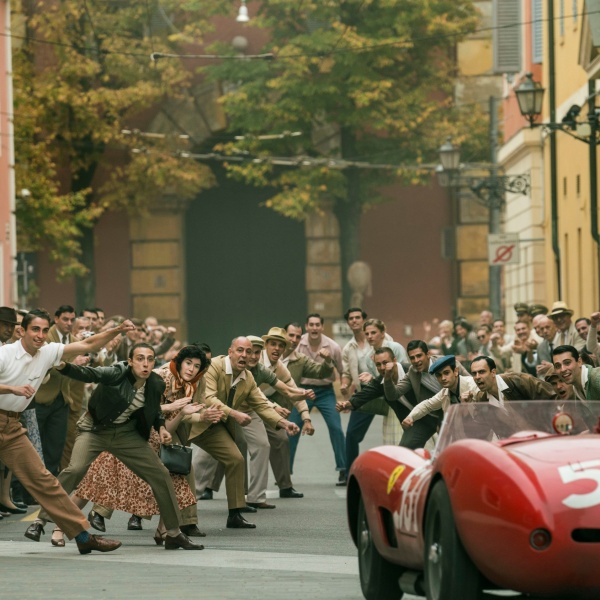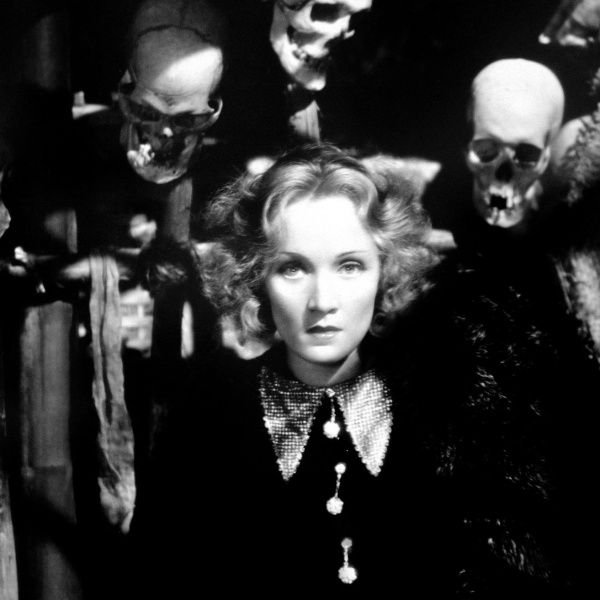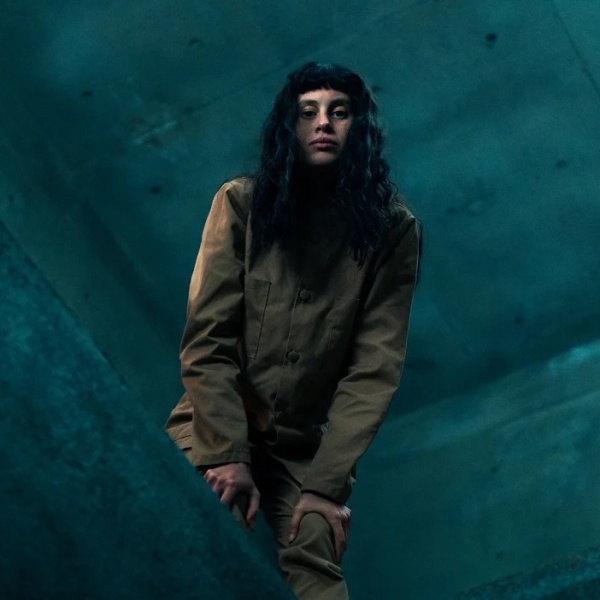When the English soccer star Harry Kane finally decided to leave his childhood club Tottenham Hotspur and the Premier League this summer, much of England was up in arms. In doing so, Kane appeared to sacrifice (fatally, perhaps) his realistic attempt at breaking the division’s all-time goalscoring record. A couple more seasons, pundits said, would have done the trick. Immortality, and certainly a statue, would have come.
What Kane knows, and what his critics appear not to, is what really motivates elite athletes: not stats, glory. The same lust drives Willie Pep (James Madio), the titular featherweight boxer in Robert Kolodny’s nifty debut feature. Aged 42, Pep plots a comeback, six years after hanging up his gloves. Virtually all those around him, including trainer Bill Gore (Stephen Lang) and business manager Bob Kaplan (Ron Livingston), say this is a terrible idea. That his 220-10 win record, unheard of in the sport before or since, is worth protecting.
Well, fuck records. Like his middleweight contemporary and “Raging Bull” Jake LaMotta, Willie struggles outside the ring. His children and father are estranged, while his wife Linda (Ruby Wolf), his fourth, feels trapped at their suburbs home in Hartford, Connecticut as the cultural revolution rages elsewhere.
Pep’s return to fighting is motivated by another related cause: bread. He says he made $1.2 million in the first leg of his career, and spent $1.3 million. “My ex-wives left and took my money with them”, he laments to an anonymous documentary camera crew sent to hear his story. “The Featherweight’s” serious-mockumentary format is inventive and ultimately effective, even if at first it appears to be a bit of a shortcut for exposition, and having our characters repeatedly state how they’re feeling. It does put a limit somewhat on Kolodny’s capacity to be expressionistic, particularly during fight scenes, but in the moments “The Featherweight” opens up, it gets to something quite profound.
Madio as Pep has no difficulty embodying the boxer’s stunted posture and the wily way he carries himself, with a voice that sounds like a less cartoonish Joe Pesci. Those physical attributes are matched by a chutzpah covering weakness that we’ve seen before in better-known boxing films, but which feels entirely believable. When Pep returns to the gym to train, he’s told he needs to pay dues like everyone else. “I’m not running a charity,” Bill Gore says. Pep tells the camera crew separately: “What? This is the house Willie built.”
Where he’s most vulnerable, and therefore overconfident, is in his relationship with Linda, a much younger woman who put her own life on pause to live in Pep’s world. Now she’s asking why she bothered. Frankly, so are we. Relative newcomer Ruby Wolf is among the film’s standout performers, mixing Linda’s enviable steeliness and her deeper unhappiness at the flick of a switch. Stephen Lang and Ron Livingston are safer choices in key supporting roles, and do what we’ve come to expect of them, while Madio and Wolf are given space to be a little flashier. Each character’s interactions with the film crew tells us extra about them, but Linda’s are the most interesting and poignant.
That’s not to say Willie is any kind of villain; he’s certainly no LaMotta. It’s not that fame has given him a taste of power to which he’s become addicted. He just liked being on top. Now he shouts about his former glory, which only accentuates the shortcomings: Willie demands to be called “Champ” by those close to him, he repeats the same tired lines at the sparsely attended dinners where he can earn a buck, and still insists he’s the greatest featherweight ever, despite losing twice against another two-time champion in his weight class, Sandy Saddler. Pep’s personality and crafty relationships with the press helped make him the first boxer to fight after entering the International Boxing Hall of Fame. Saddler wasn’t invited until 1990, the same year fellow African-American Jack Johnson entered. Pep might have felt like a victim, but boxing has bigger ones.
As debuts go, “The Featherweight” is more than just a competent drama. It’s as nifty as its warts-and-all protagonist, with an inventive verité storytelling style inspired by John Cassavettes that also evokes the era’s filmmaking. Long may such boldness continue in a sub-genre that’s always at risk of becoming samey. Like Willie, “The Featherweight” refuses to be brushed aside.
Grade: B+
“The Featherweight” premiered at the 2023 Venice Film Festival. It is currently seeking U.S. distribution.
